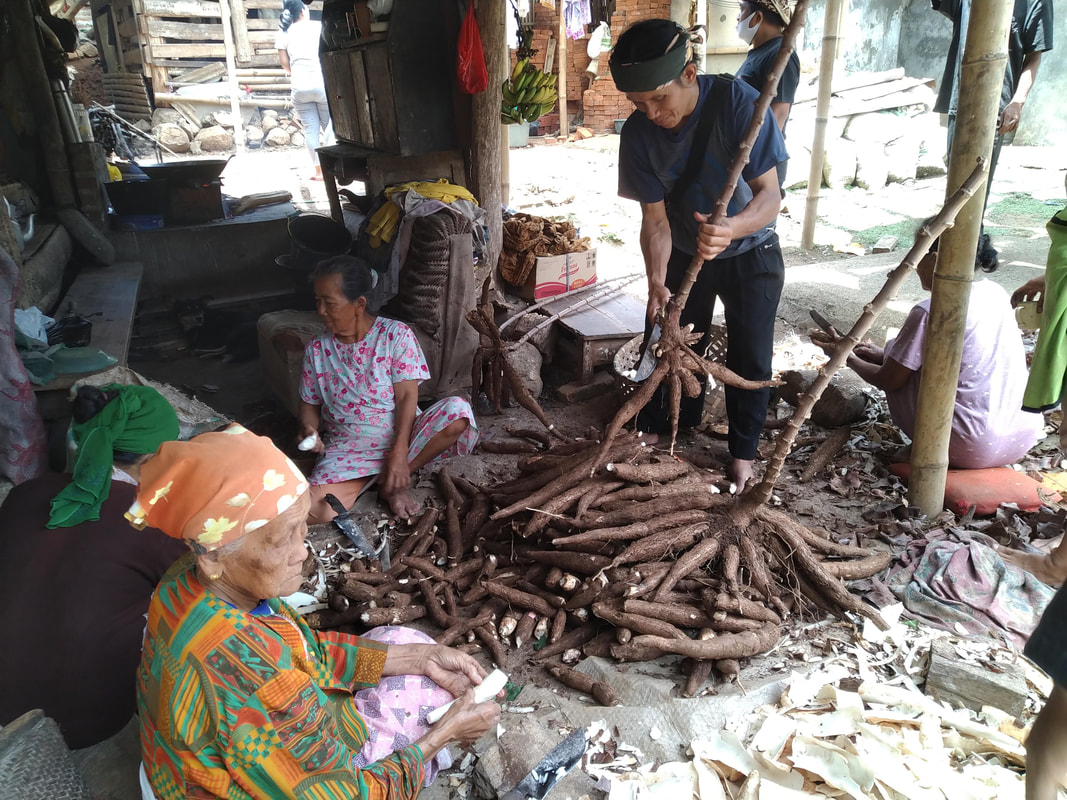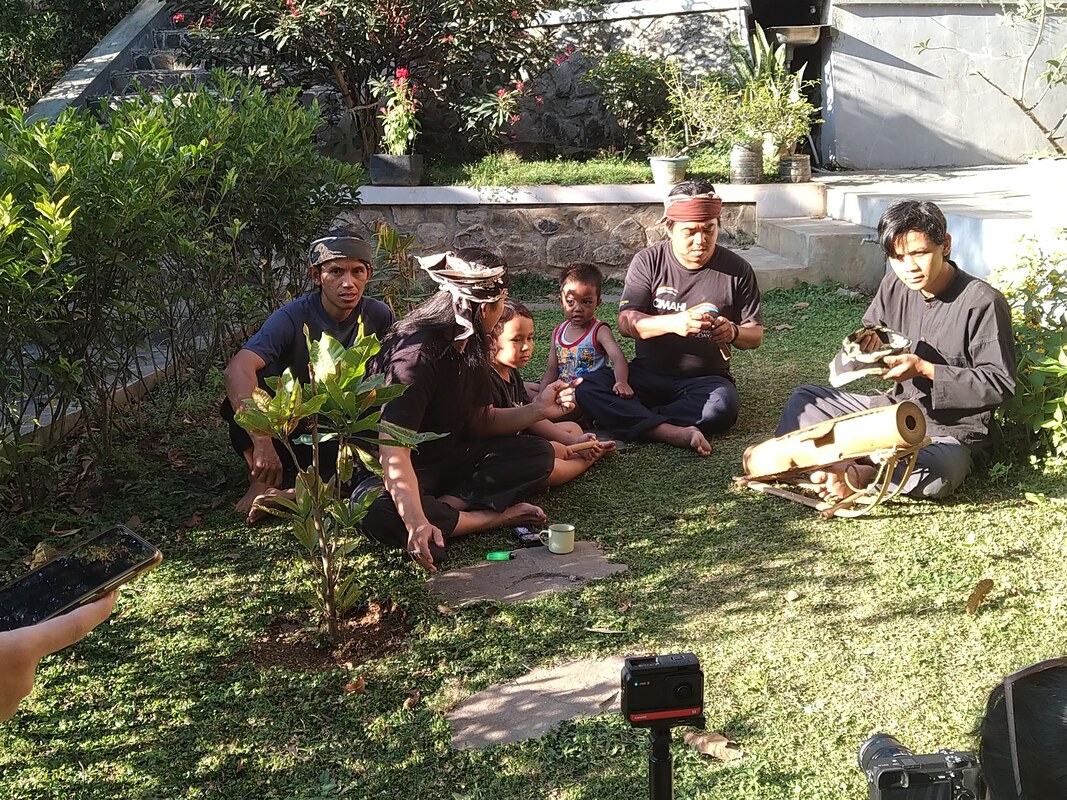Kampung Adat Cireundeu, Cimahi, West Java, Indonesia
We visited Kampung Adat Cireundeu in Cimahi, West Java, Indonesia on September 29, 2020. This village is well-known as one of the unique villages in West Java. Amid the modern situation around city of Cimahi, Kampung Adat Cireundeu still maintains their ancestor tradition in their everyday lifestyle including the distinctive clothing, dietary food, arts and music not to mention religion.
In this visit, we have an opportunity to know and enjoy various activities of their everyday life, such as rituals of harvesting and planting cassava, various cooking of cassava (their main diet), their traditional music and song, including the show of Angklung attraction played by their children. No to forget, they hospitalize us with all the traditional food at lunch time.
In addition, we also made a dialogue and conversation regarding the uniqueness of their tradition and as to how they maintain their identity in the amid of modernity. The main issue that they deliver to us was the administration of citizenship in local government. This issue arises because their religion was not registered as one of the listed religions in Indonesia. This situation is quite irony, because they are categorized as indigenous people in Cireundeu, yet their citizenship in the level of public administration is still bias and unruled.
We hope that in the near future this issue can be resolved by local government as well as the central government. This irony should be settled fairly and we all should be advocating this issue, in order to support such society to maintain their tradition which is always highly related to their environmental surround. In other words, maintaining traditional lifestyle is automatically maintaining environmental surround. Their wisdom to use all the cassava plant starting from leaves, fruits, branch and root is one example of their sustainable lifestyle that should inspire modern society, not all the way around.
From this visit, we are truly learning that life actually is simple if we do live in harmony with the environmental surround. This visiting program is so precious for our foundation to enrich our knowledge at the same time to see how culture is applied in everyday life of a society and how people maintain the value of nature in their behaviors toward their fellow men as well as environmental surround.
In this visit, we have an opportunity to know and enjoy various activities of their everyday life, such as rituals of harvesting and planting cassava, various cooking of cassava (their main diet), their traditional music and song, including the show of Angklung attraction played by their children. No to forget, they hospitalize us with all the traditional food at lunch time.
In addition, we also made a dialogue and conversation regarding the uniqueness of their tradition and as to how they maintain their identity in the amid of modernity. The main issue that they deliver to us was the administration of citizenship in local government. This issue arises because their religion was not registered as one of the listed religions in Indonesia. This situation is quite irony, because they are categorized as indigenous people in Cireundeu, yet their citizenship in the level of public administration is still bias and unruled.
We hope that in the near future this issue can be resolved by local government as well as the central government. This irony should be settled fairly and we all should be advocating this issue, in order to support such society to maintain their tradition which is always highly related to their environmental surround. In other words, maintaining traditional lifestyle is automatically maintaining environmental surround. Their wisdom to use all the cassava plant starting from leaves, fruits, branch and root is one example of their sustainable lifestyle that should inspire modern society, not all the way around.
From this visit, we are truly learning that life actually is simple if we do live in harmony with the environmental surround. This visiting program is so precious for our foundation to enrich our knowledge at the same time to see how culture is applied in everyday life of a society and how people maintain the value of nature in their behaviors toward their fellow men as well as environmental surround.


